Kyoto is one of my favourite cities to visit in Japan because a lot of the nice traditional city atmosphere of "old Japan" still remains, unlike most other cities in Japan. Because I had basically visited most of the attractions in Kyoto at least once, I wanted to find another area near Kyoto that I had not been to before. After looking at some tourist guides, the city of Uji and Fushimi looked like an interesting place to visit.
In Uji, the main attraction is the Byodoin Temple (平等院) which is part of the UNESCO World Heritage Site "Historic Monuments of Ancient Kyoto".

The location of Uji and Fushimi in relation to Kyoto. Using the JR trains, it takes about 30 minutes to get to Uji from Kyoto station.
After the relatively short train ride from Kyoto station, arrival at Uji station. Even the train station is built in a sort of "traditional style".
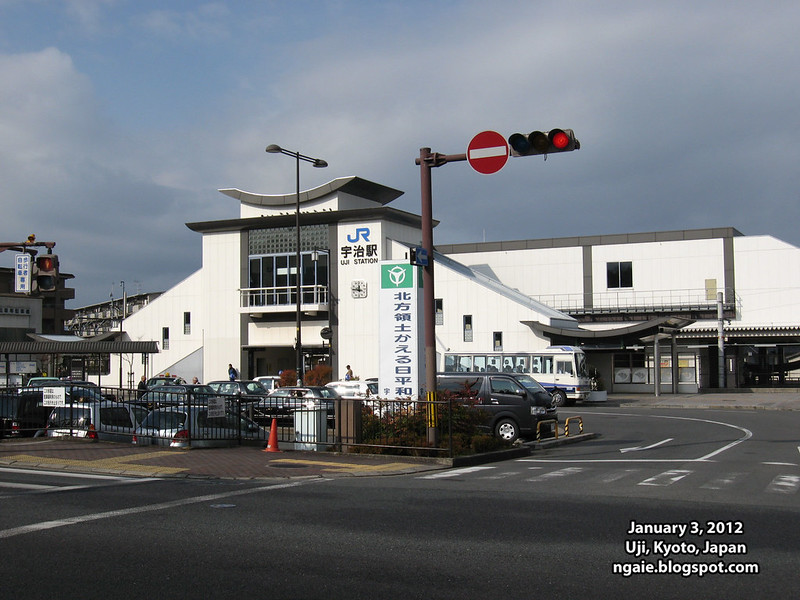
Feeling hungry, the first thing I did was to find something to eat. When traveling by yourself, the easiest and fastest thing to eat that is fresh and not fast food is ramen!
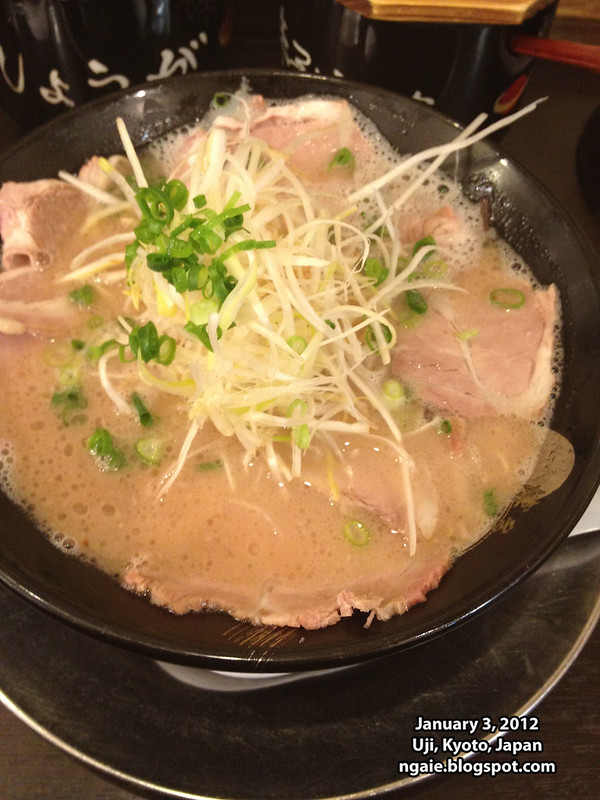
Afterwards, I noticed that there was a tea shop called Nakamura Tokichi (中村藤吉) and its main store was located in Uji. Apparently this shop is famous for the high quality green tea it sells and in the main store, in addition to the tea shop, they also had a cafe that sold dessert and sweets made from green tea. I decided to buy a take out version of its green tea maccha jelly for eating later.
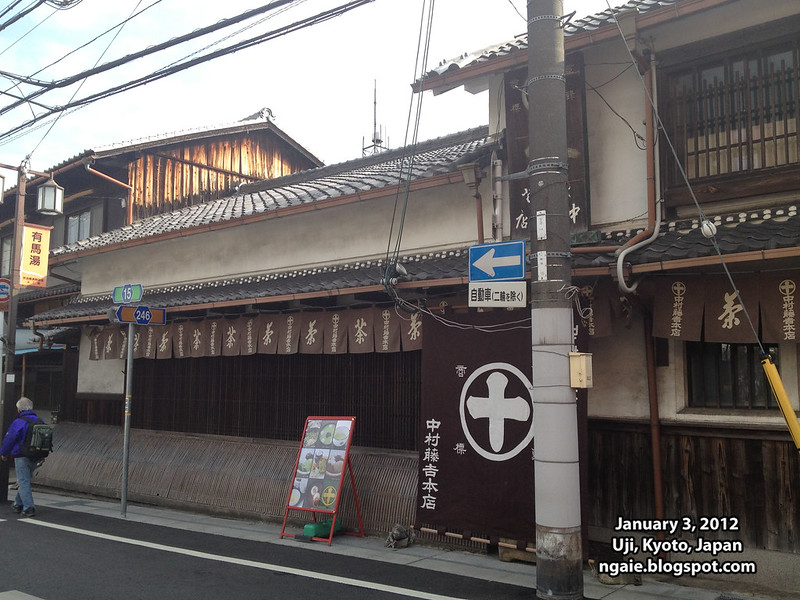
I later ate the green tea maccha jelly in my hotel room later that night.
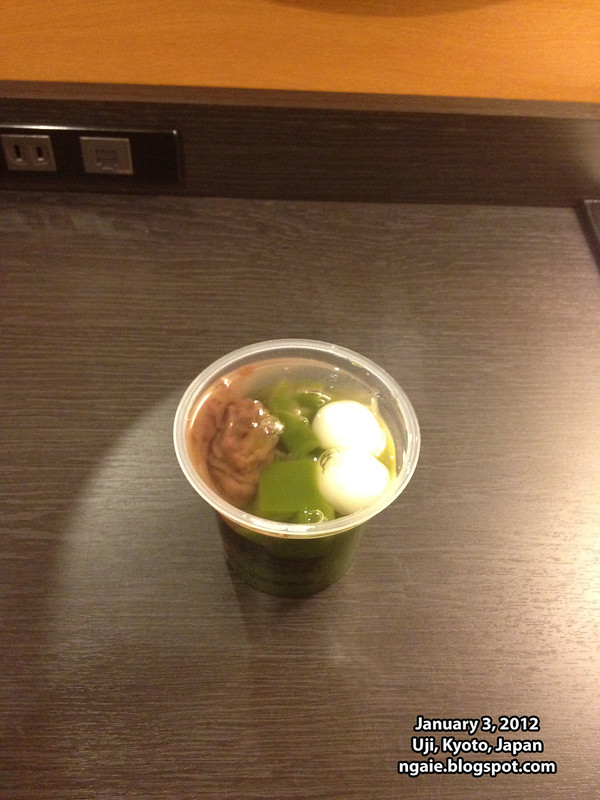
After all that eating, I proceeded to the main tourist attraction in Uji, the Byodoin Temple. The temple complex was originally built in 998 and in 1053, the most famous building, the Phoenix Hall, was built. The Phoenix Hall is also featured on the back of a Japanese 10 yen coin.
Entry ticket to the Byodoin Temple.
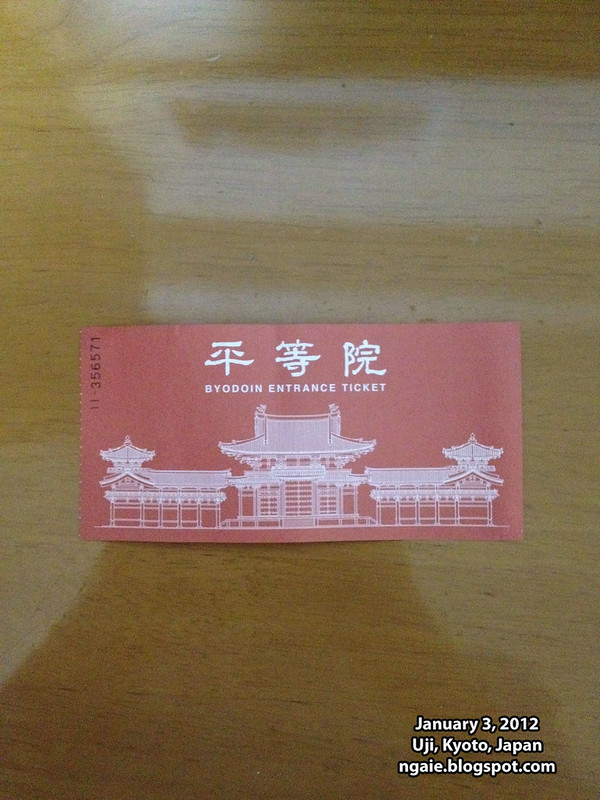
The Phoenix Hall, visitors can't actually visit the actual building but can only see it from afar.
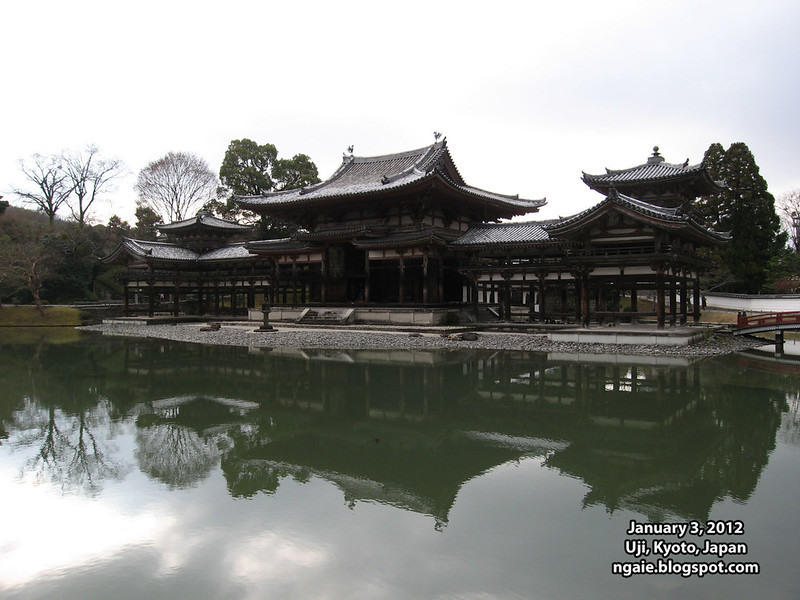

From other angles.
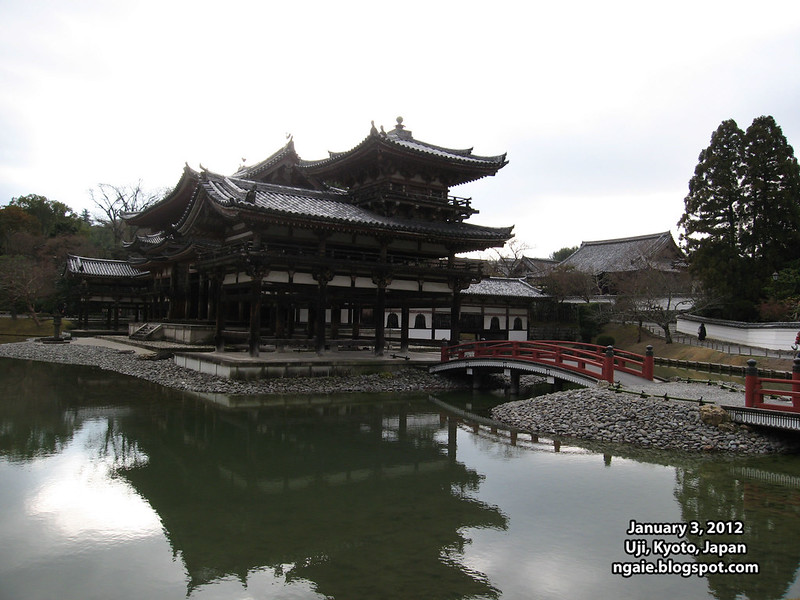
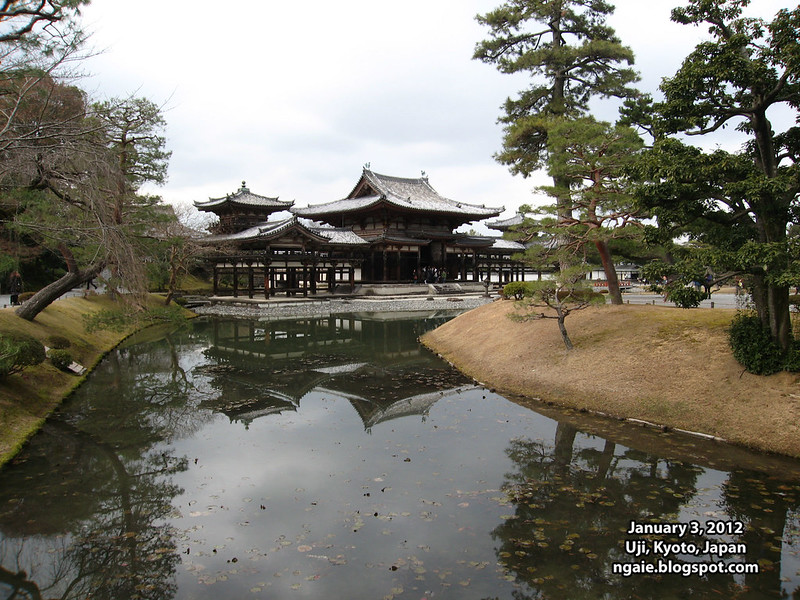
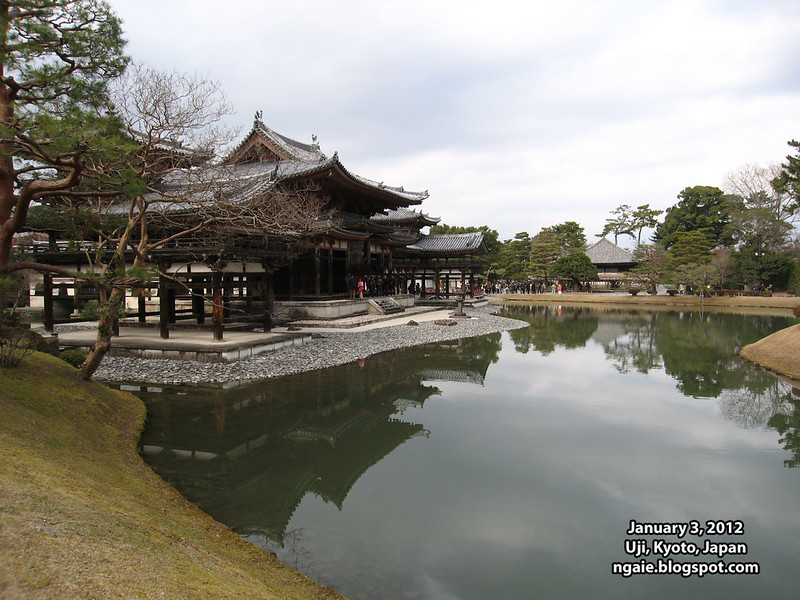
Inside the Byodoin Temple, there was a Treasure House, a museum showing the Buddhist temple's most valuable artifacts. To me, the exhibition of the artifacts was not very interesting but on the contrary, the building housing the artifacts was interesting because I thought it was like a modern Japanese interpretation of traditional Japanese architecture.
Leading to the Treasure House building.
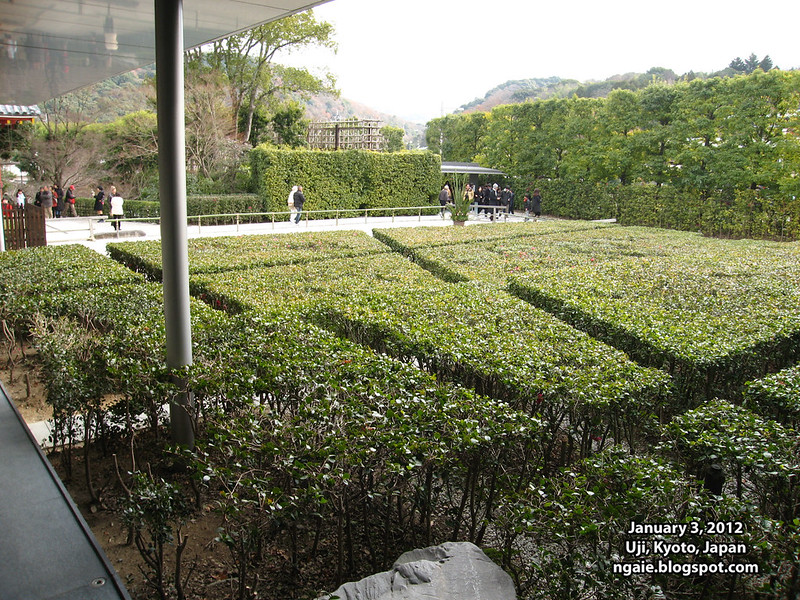
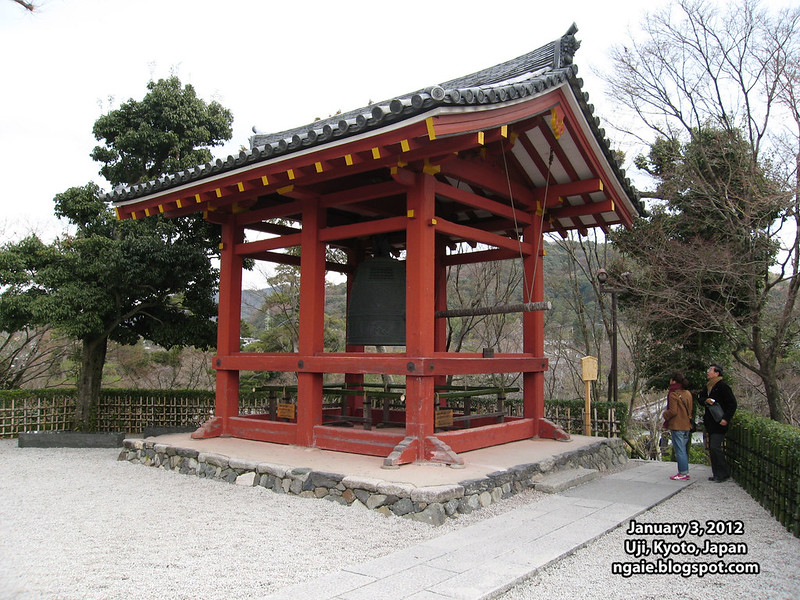
The Treasure House building.
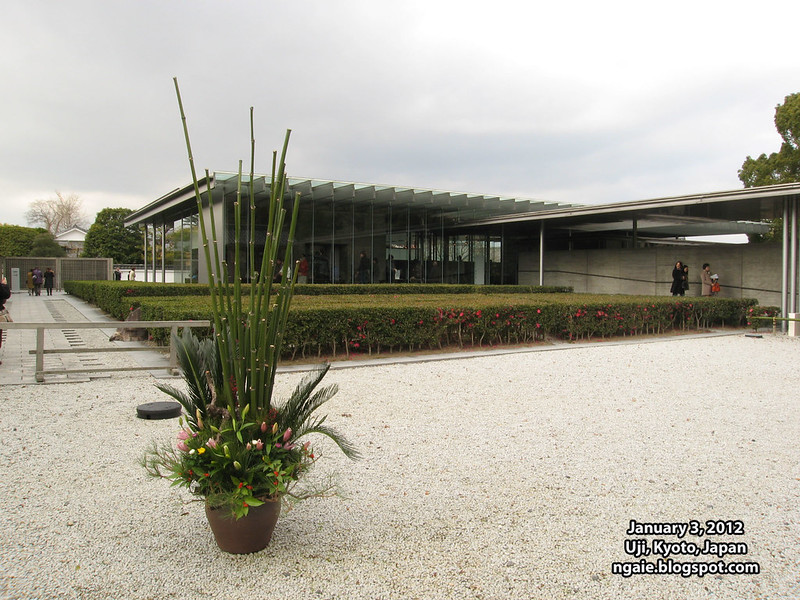
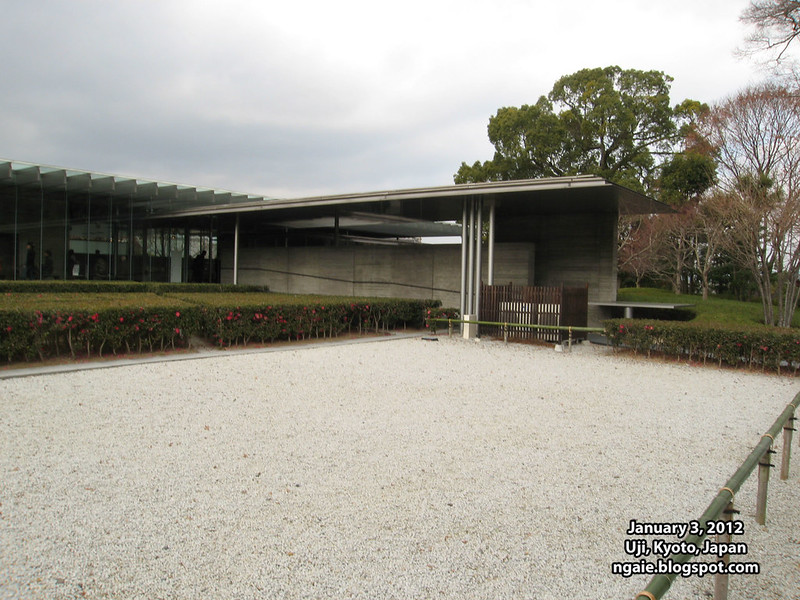
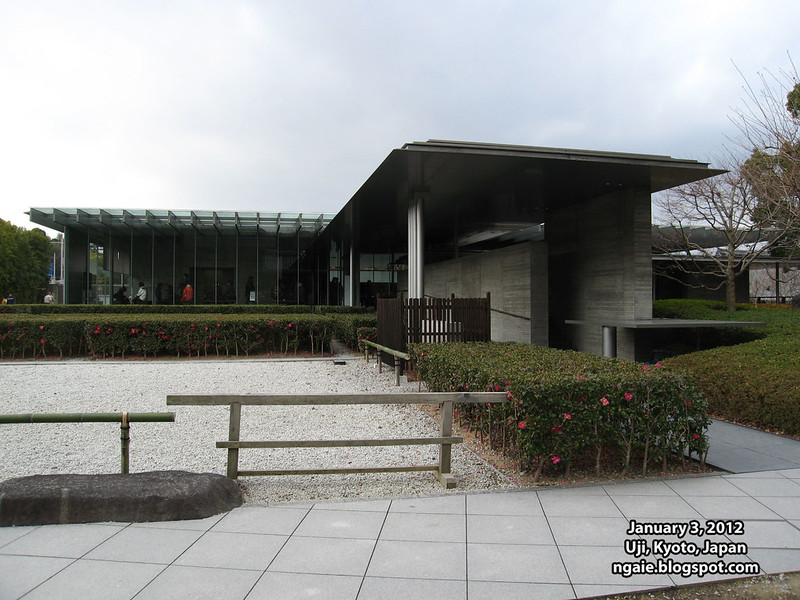
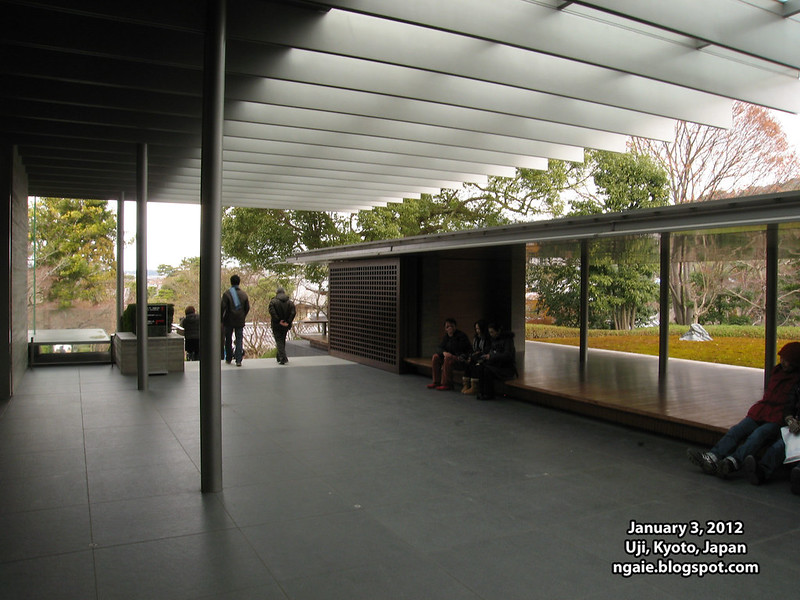
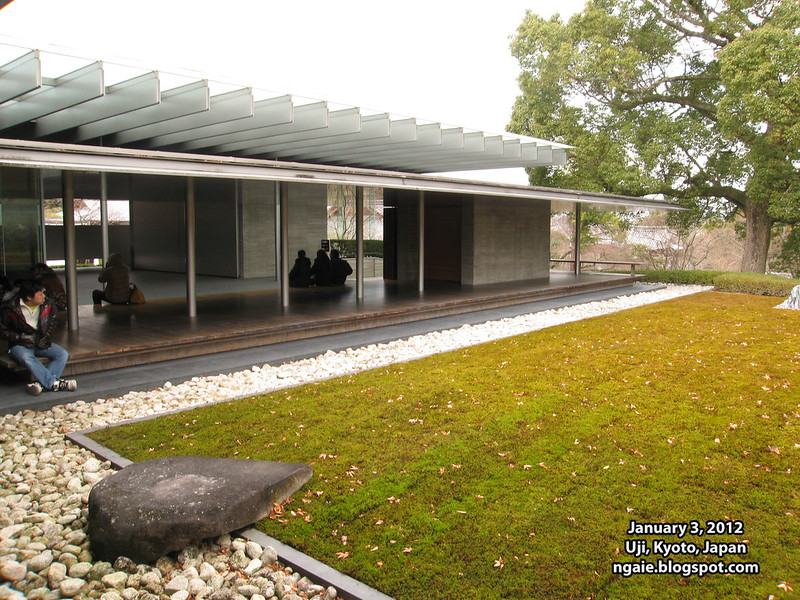
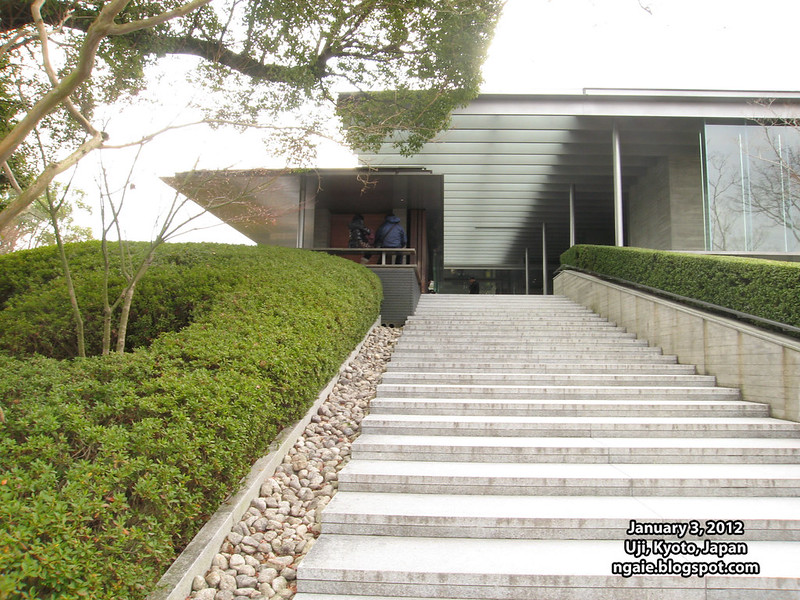
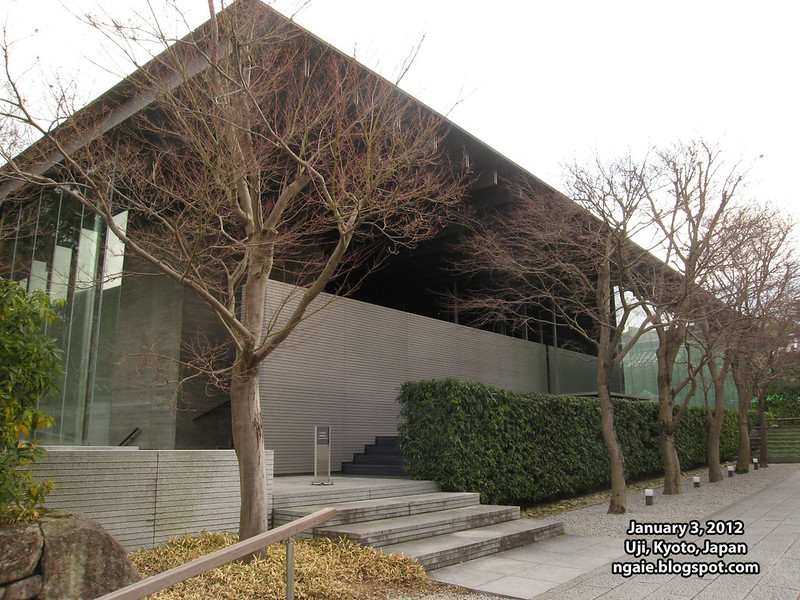
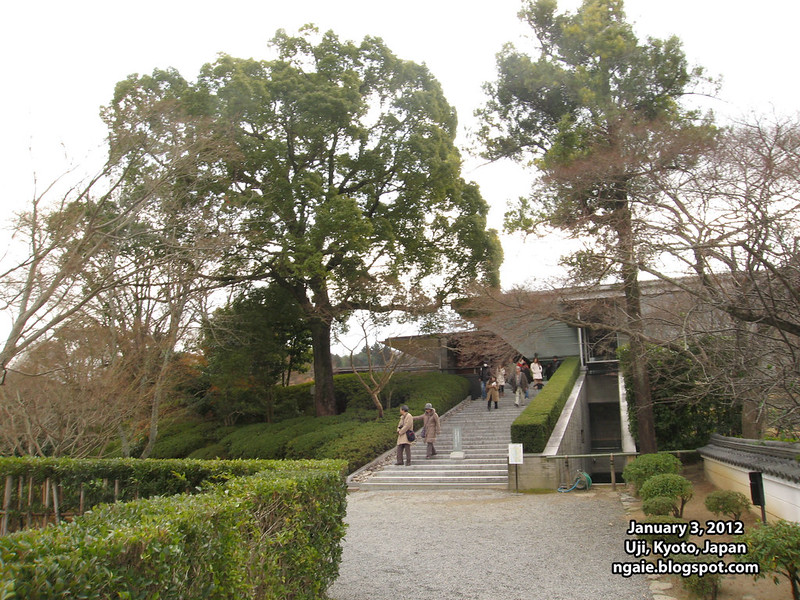
The temple complex's walls from the Treasure House building.
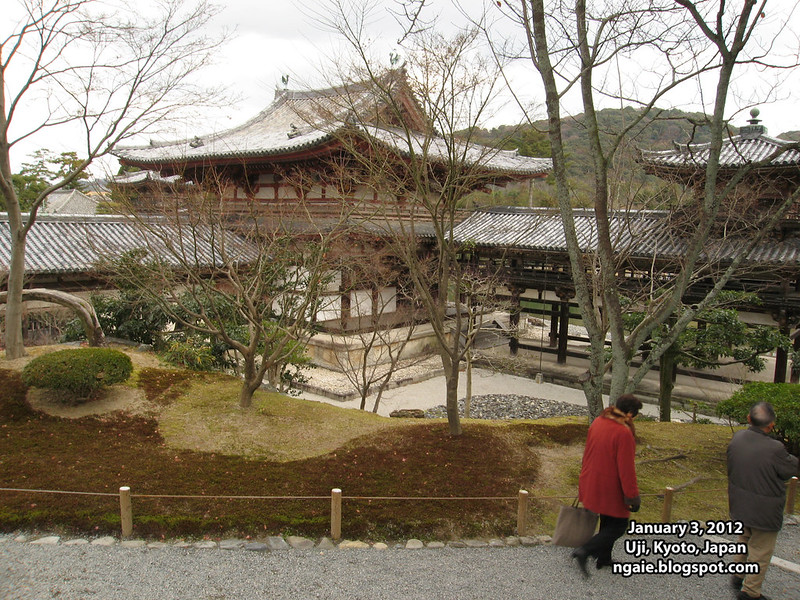
More views of the Phoenix Hall as I make my way out of the temple complex.
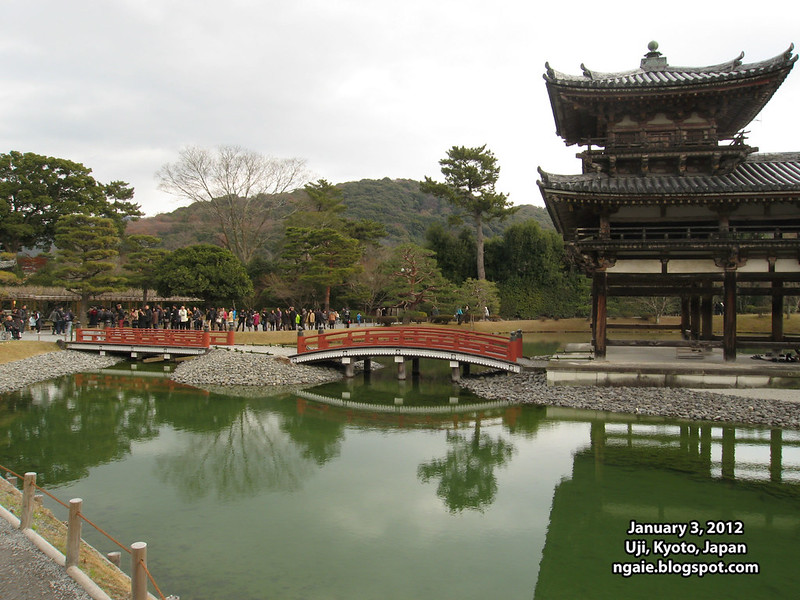
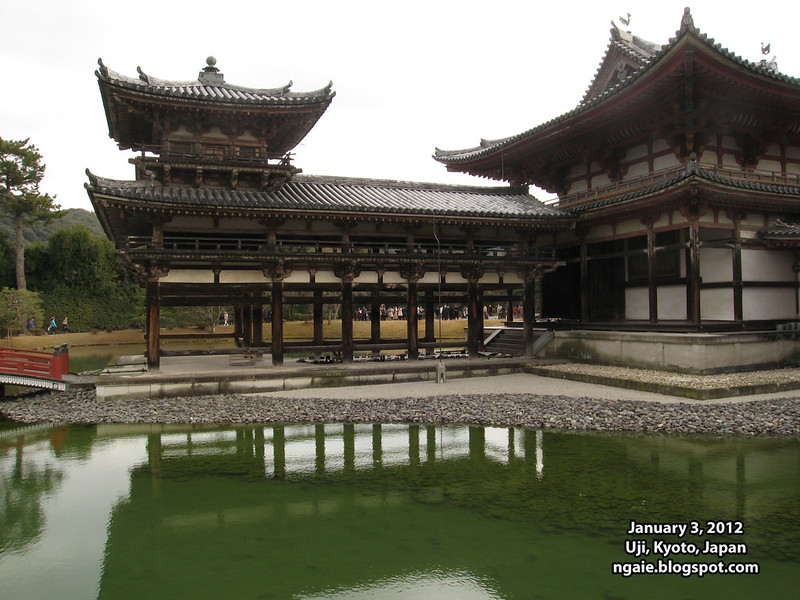
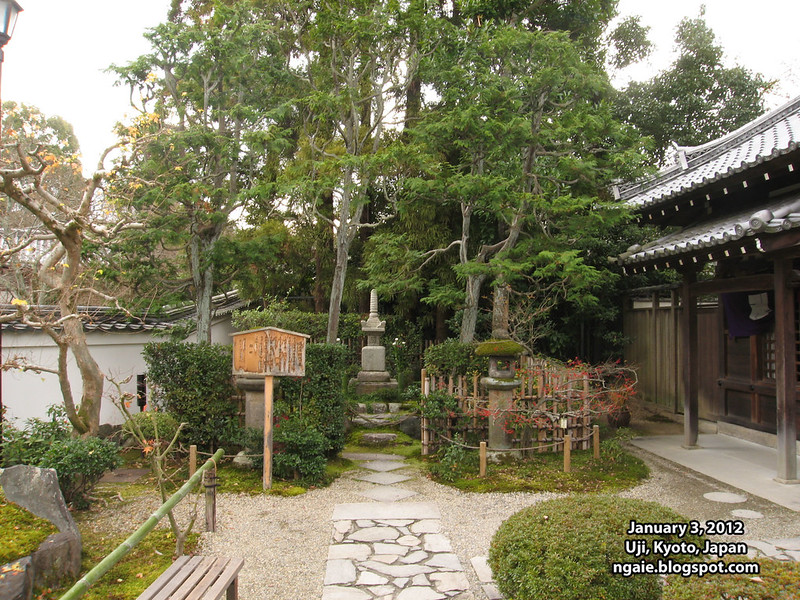
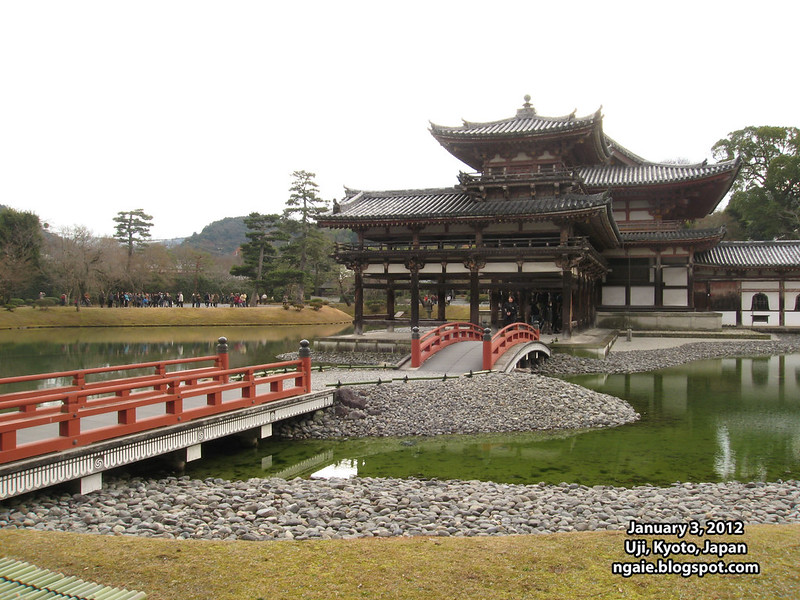
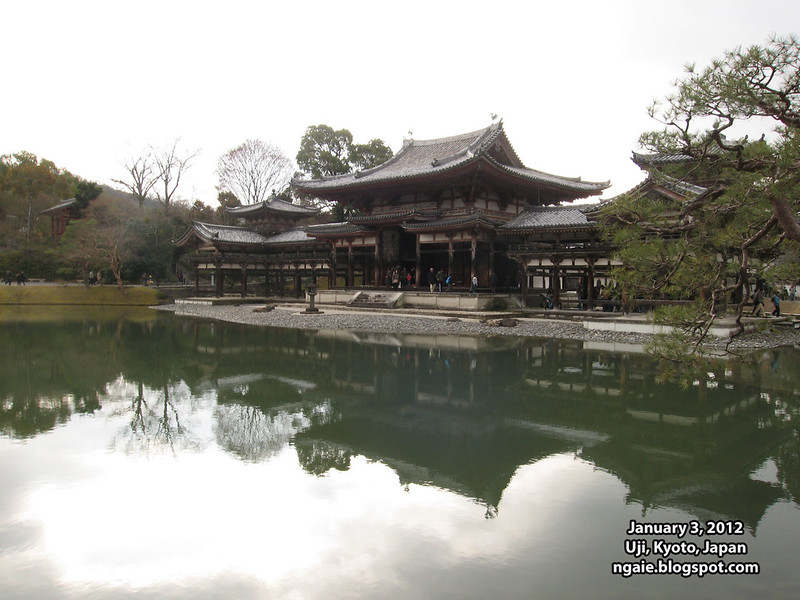
Interesting contraption to support the trees.
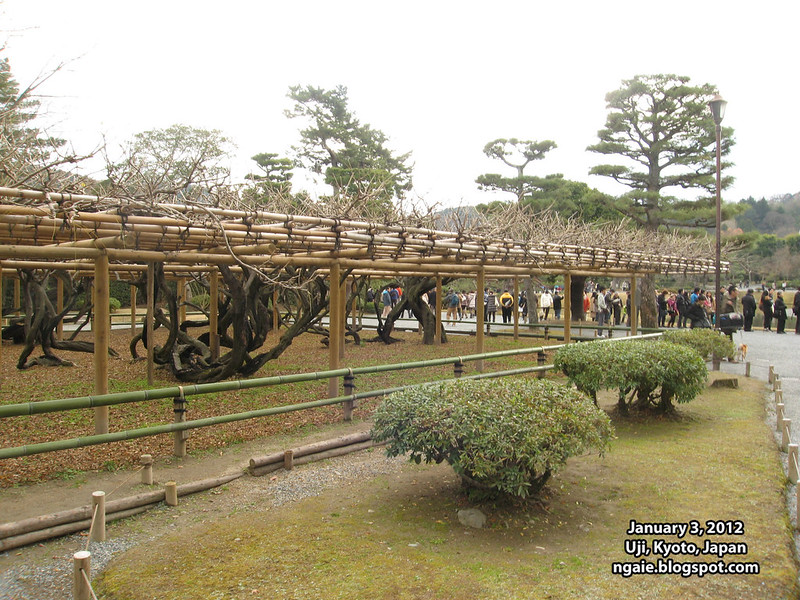
Exiting the temple complex.
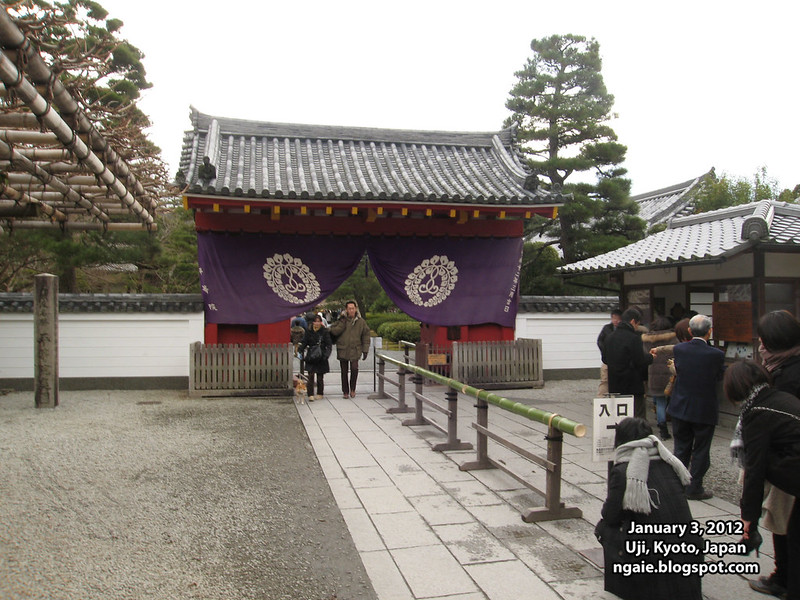
The plaque that designates the temple as a UNESCO World Heritage Site.
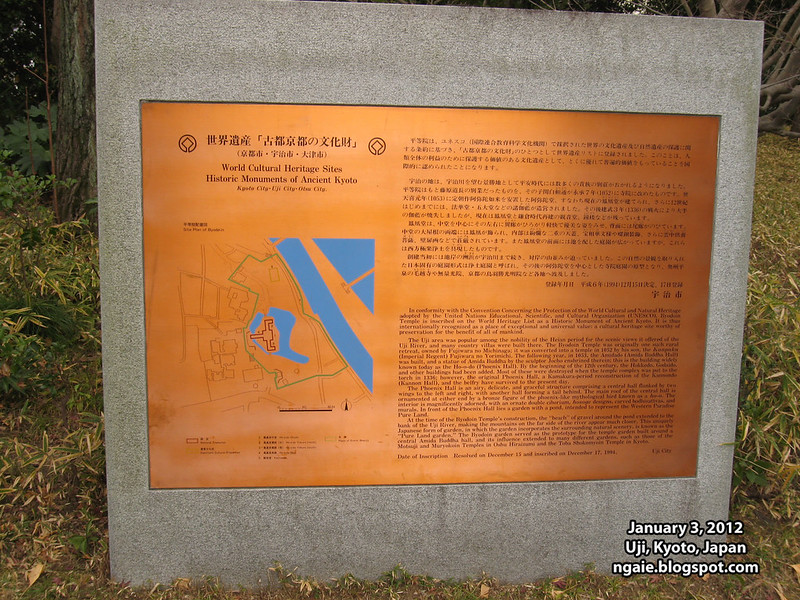
Next, I across the Uji River by foot to see what there was on the other side.
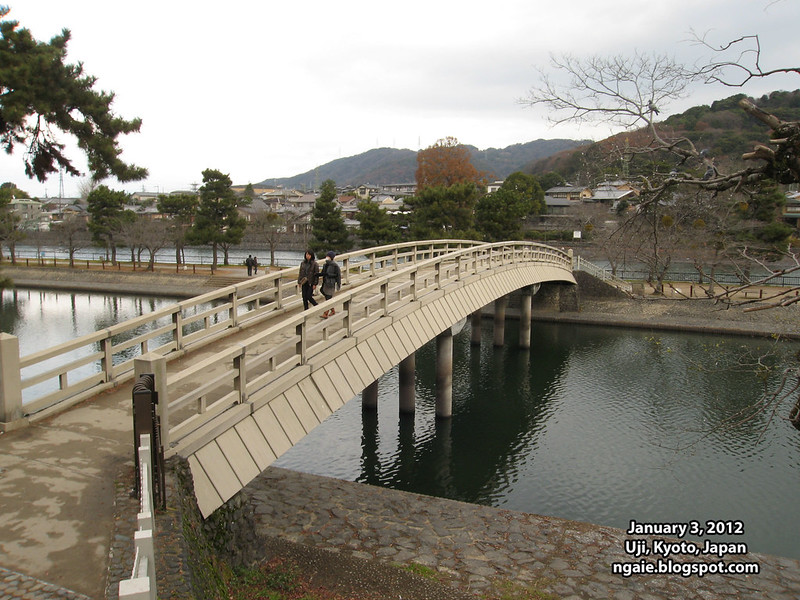
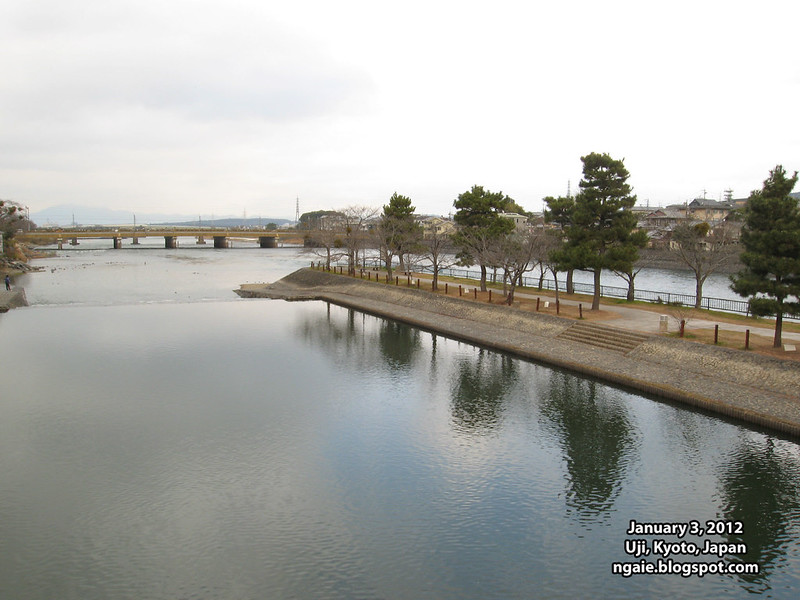
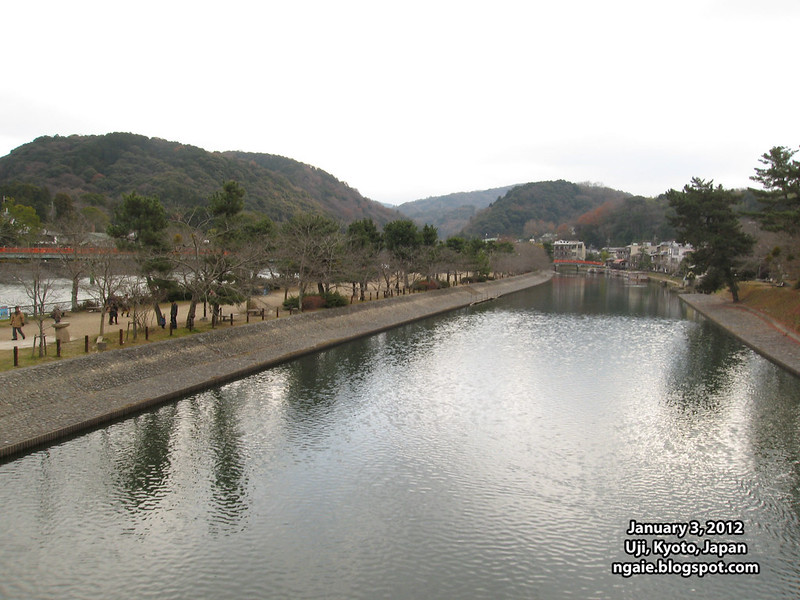
Even though the Uji River looked calm from a distance, the river currents flowed really fast.
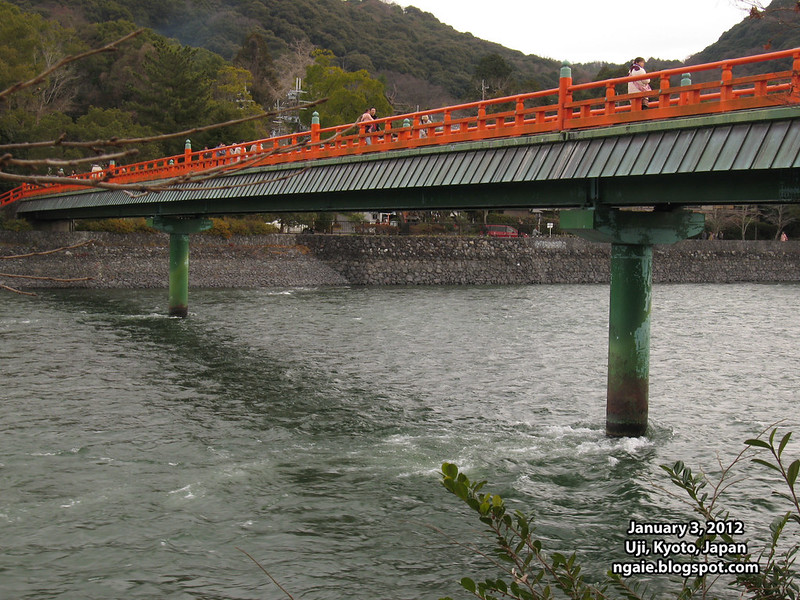
View of the train crossing the Uji River.
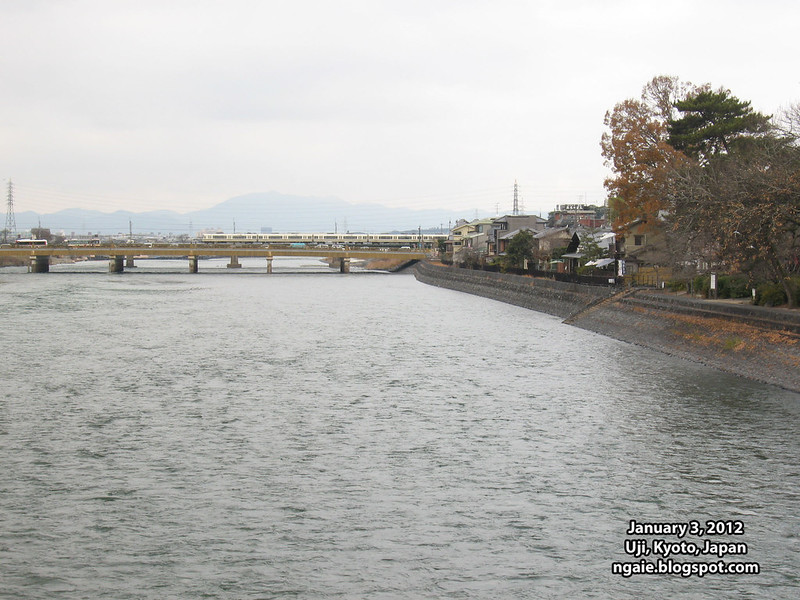
After crossing the pedestrian bridge across the Uji River, the Uji Shrine was directly in front. Since it was January 3, there were still long lineups as people were still doing their New Year's shrine visits.
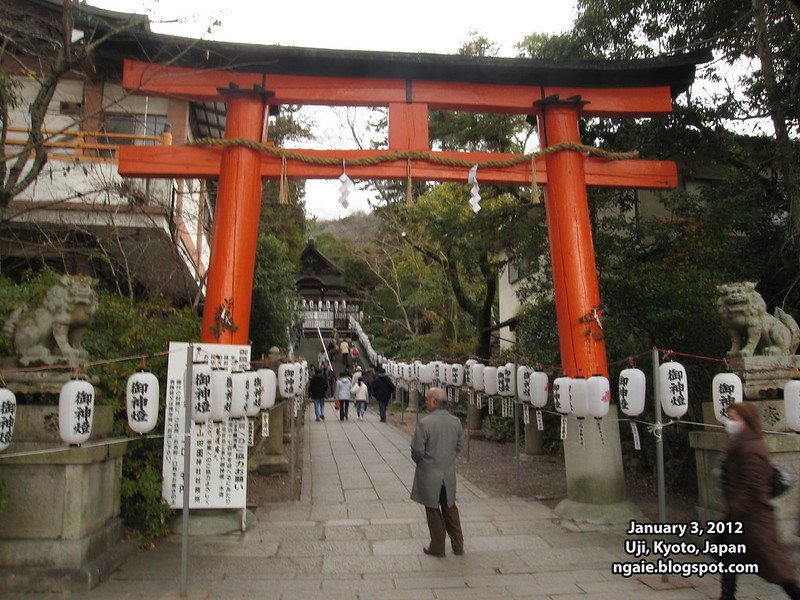
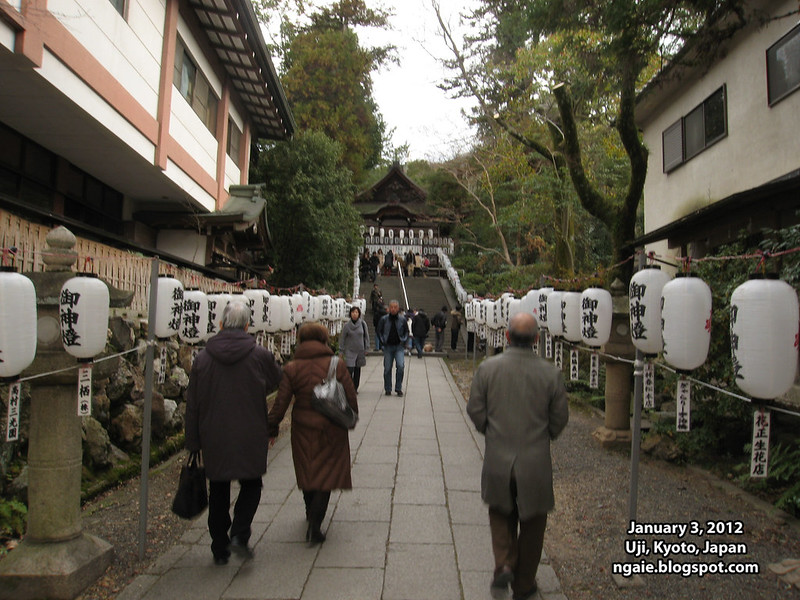
A lot of families with kids there.
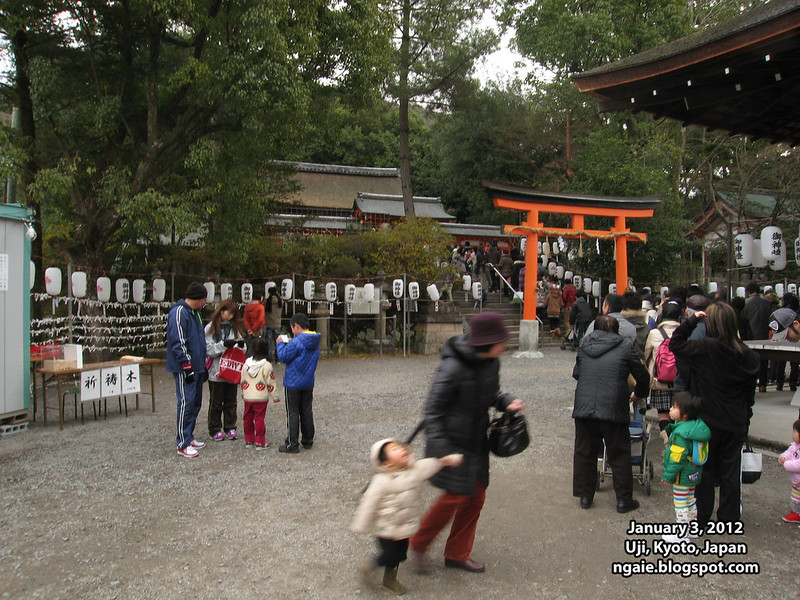
Because of the long lineups I didn't bother going inside to see.
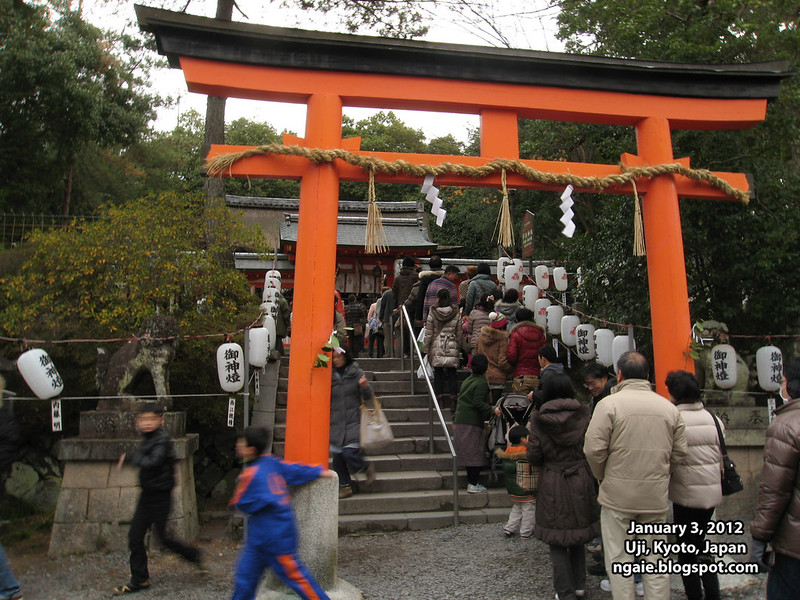
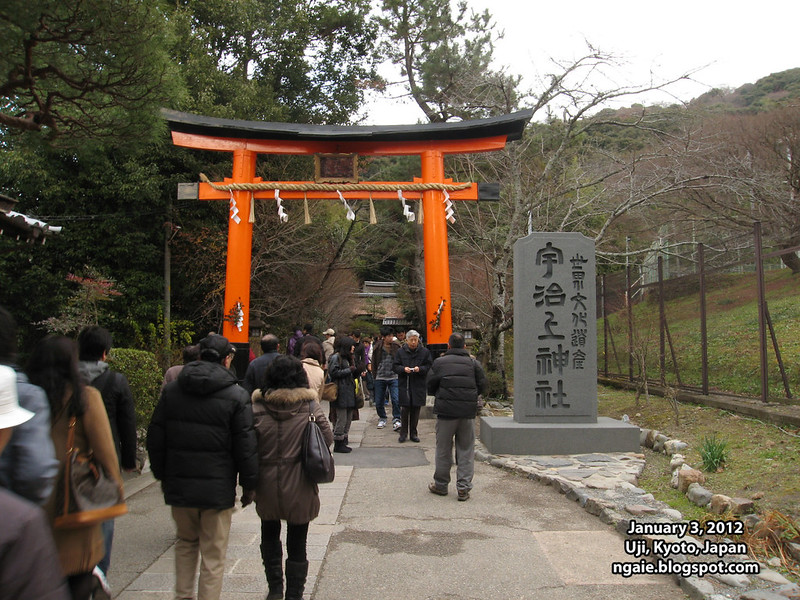
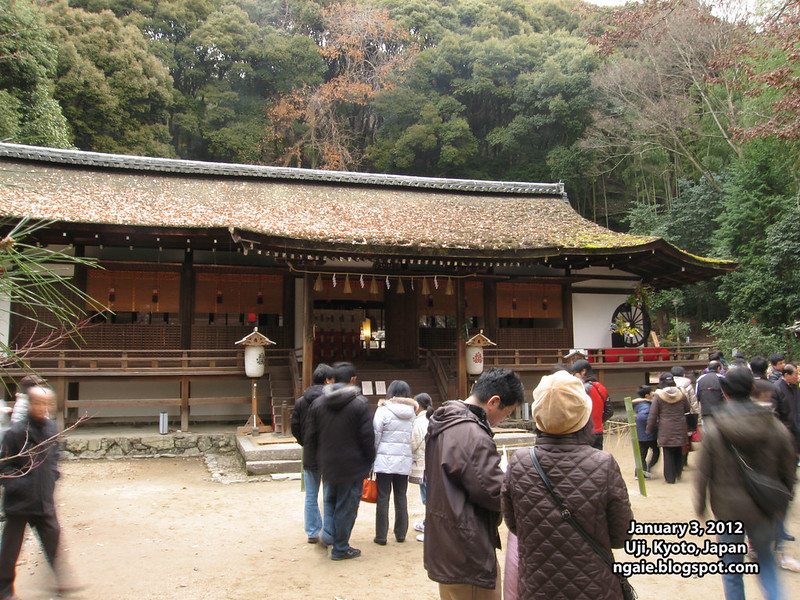
Walking on my way to the nearest train station to go to my next destination, I noticed that some land was being cleared for new houses. What was interesting to me was how small, neat and tidy these little plots of land where for building houses.
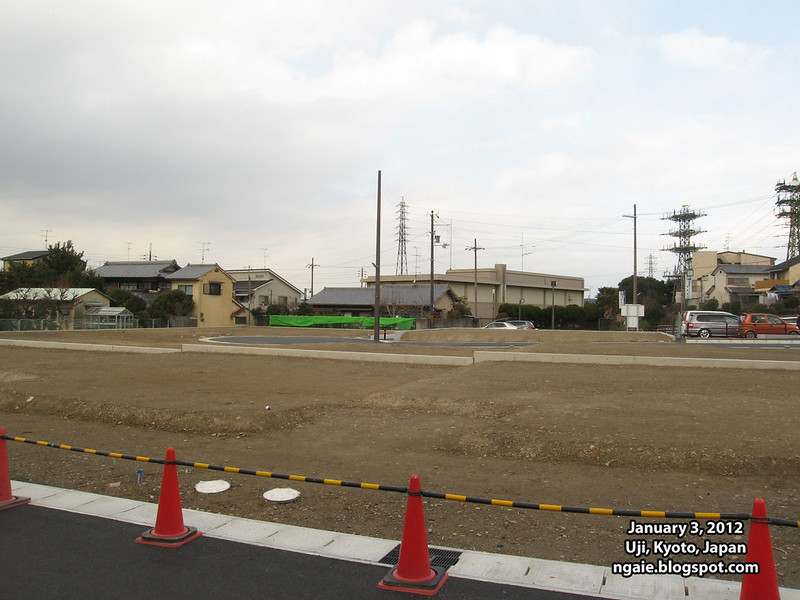
How typical suburban Japanese housing really looks like. Rows and rows of small houses connected by alleyways without any greenery or trees.
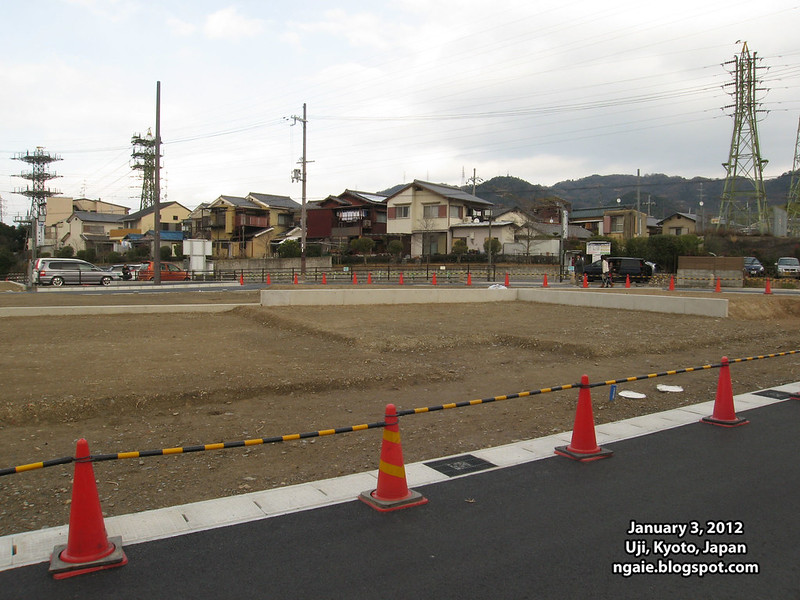
My next destination was Fushimi, just north of Uji. I alighted from the train at Chushojima station (中書島駅) on the Keihan Uji Line. The Chushojima and Fushimi areas are major sake production sites in Japan.
Upon leaving the station, there were a lot of canals in the area which adds to the nice atmosphere. Unfortunately, since January 3 was still part of the station New Year's holiday for most Japanese businesses, a lot of stores and etc. were not open.
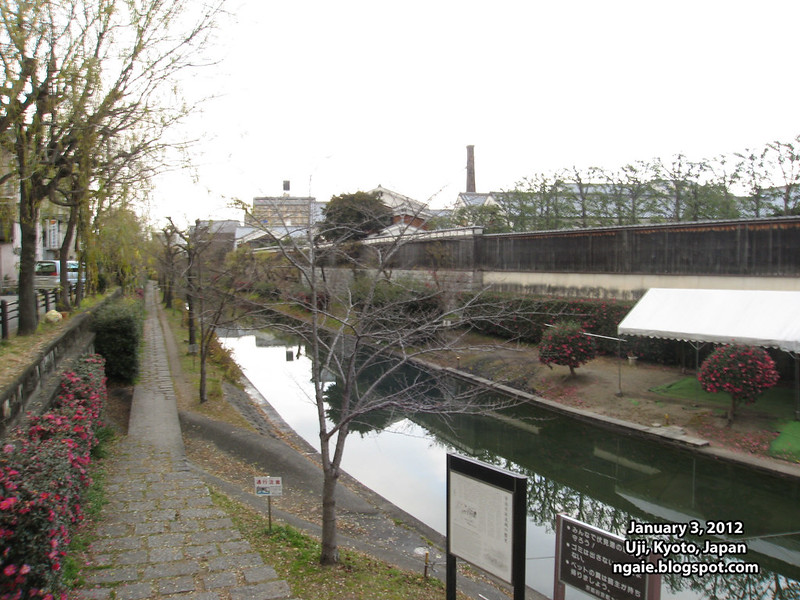
This included the boats that ply the canal.
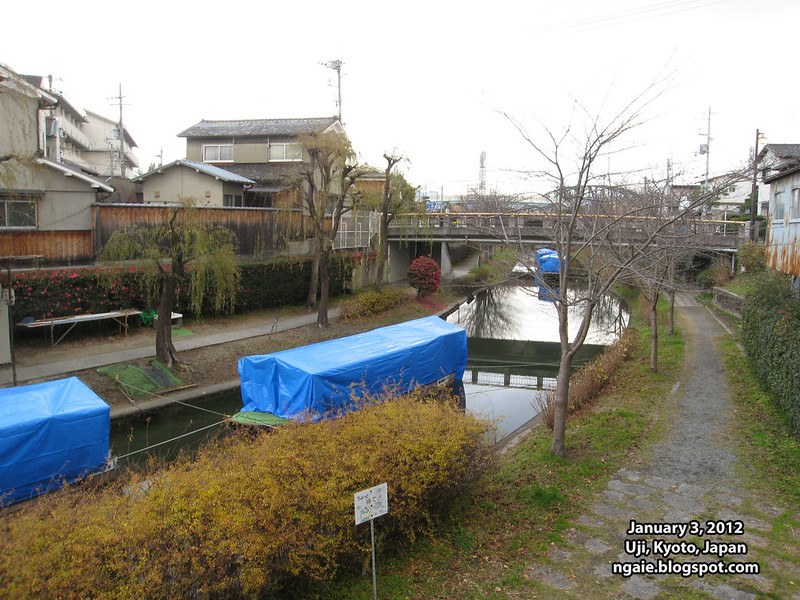
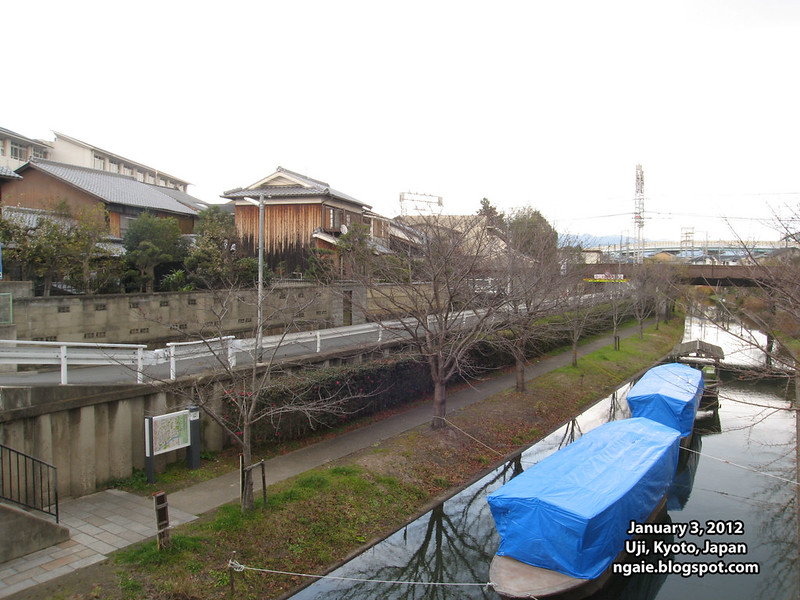
The original factory of famous sake producer, Gekkeikan (月桂冠). Normally you could tour the factory and get sake samples, but since this was the New Year's holidays, nothing was open.
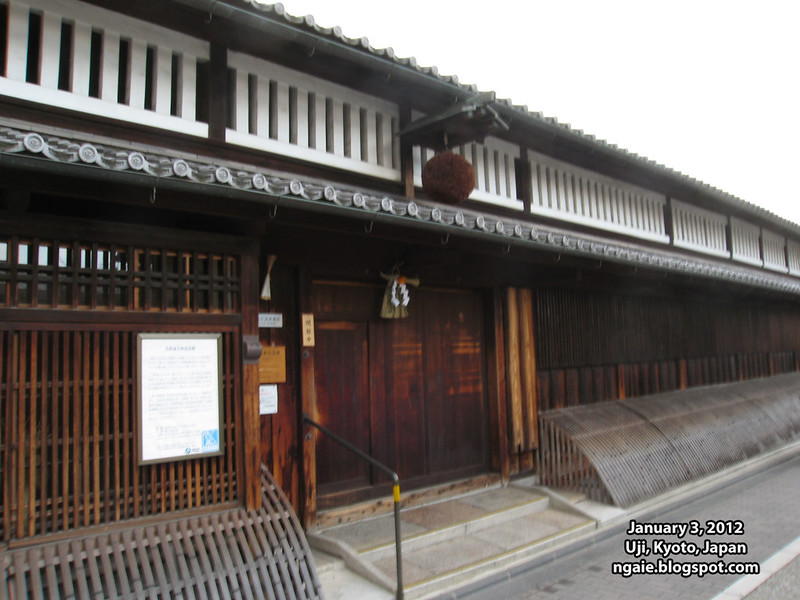
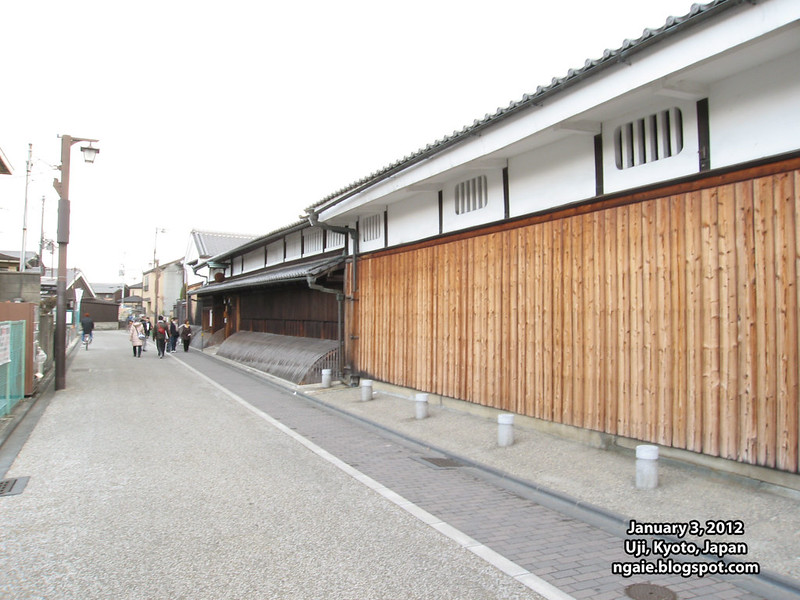
The corporate headquarters of Gekkeikan right across the street from its original factory.
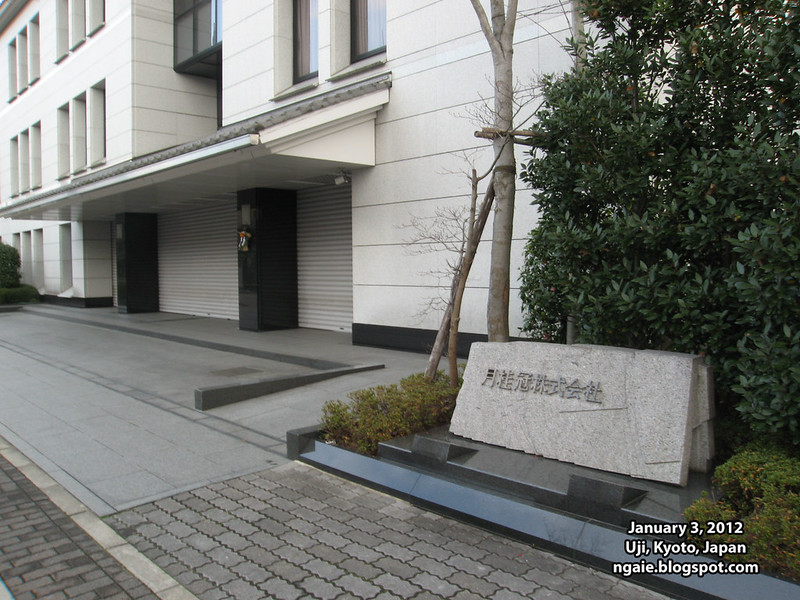
More canals around the town.
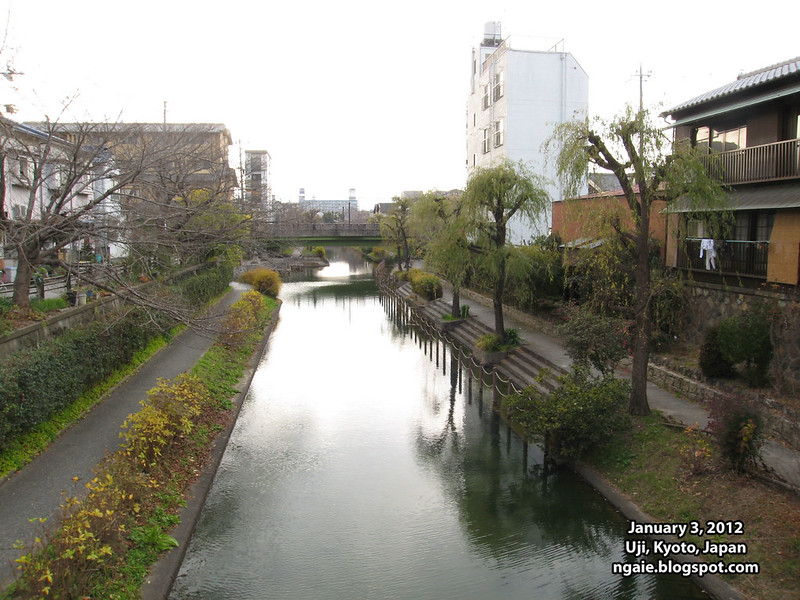
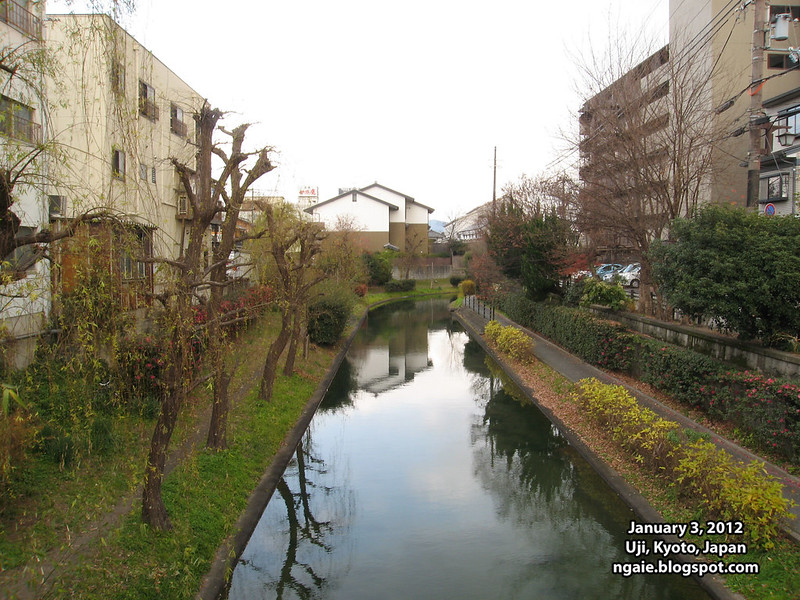
The Teradaya Inn (寺田屋). The inn favoured by 19th century historical figure Sakamoto Ryoma, who helped to end Shogunate rule and to bring power back to the emperor. One prominent event was an assassination attempt on him at this inn in 1866.
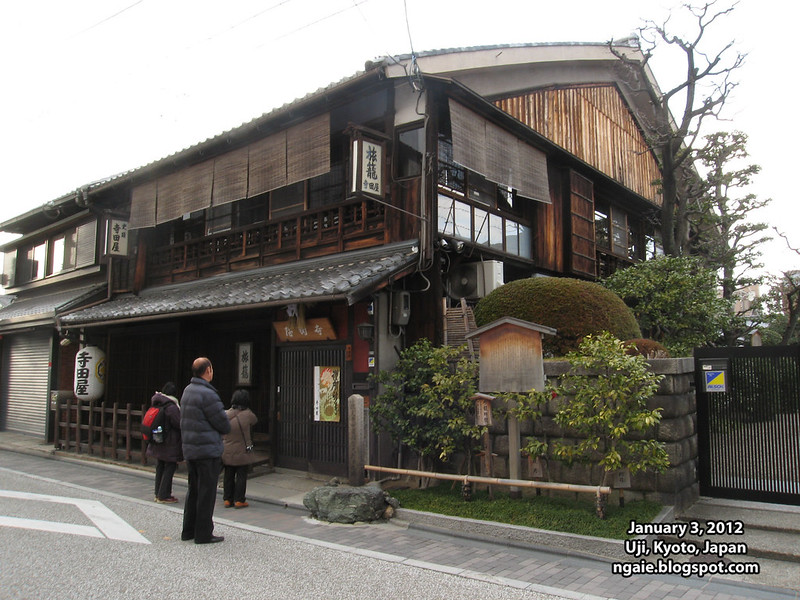
Walking through the traditional looking streets to the train station to go back to Kyoto.
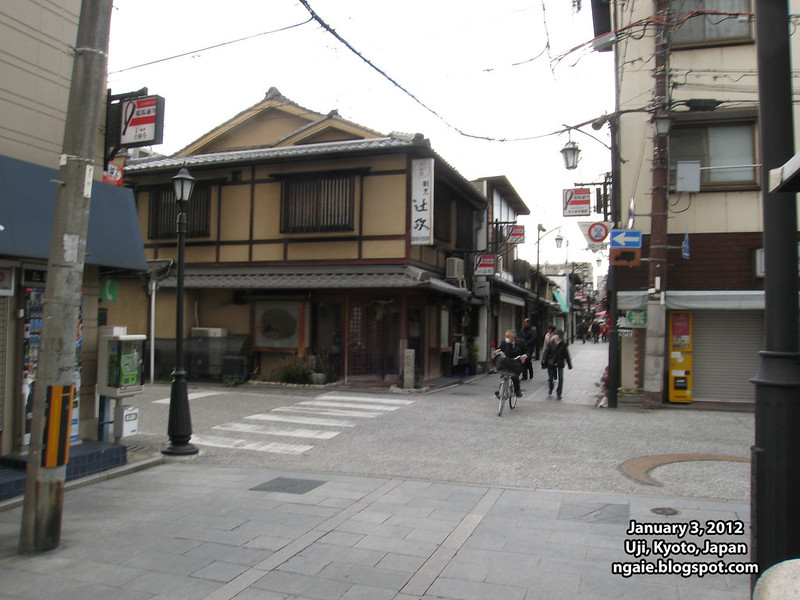
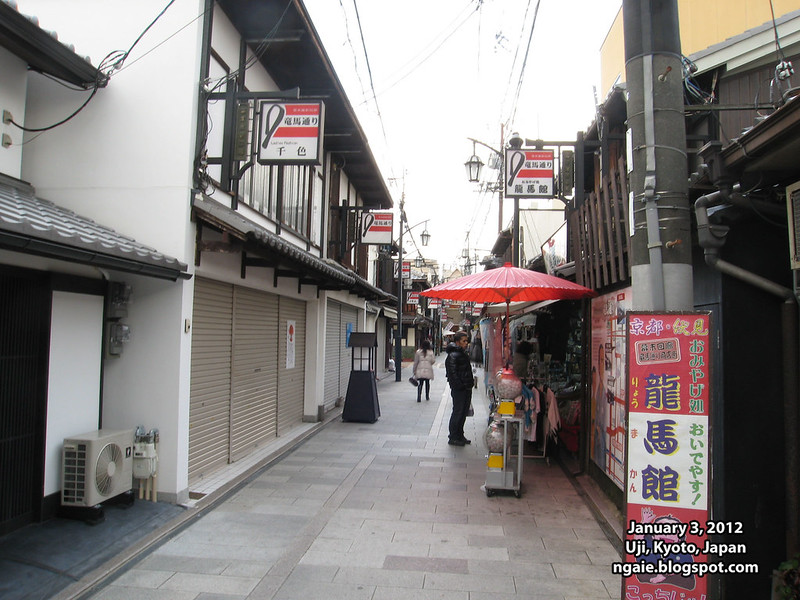
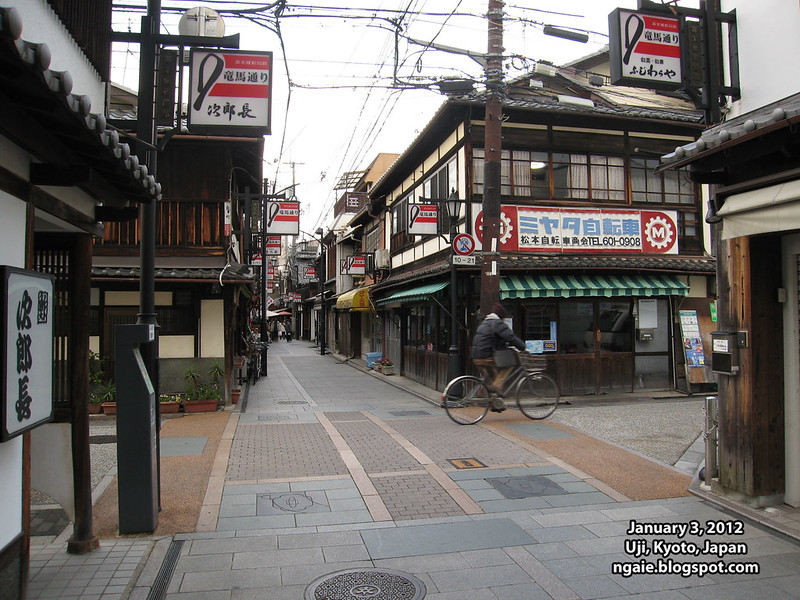
Return back to modern Japan at the Fushimi-momoyama station.
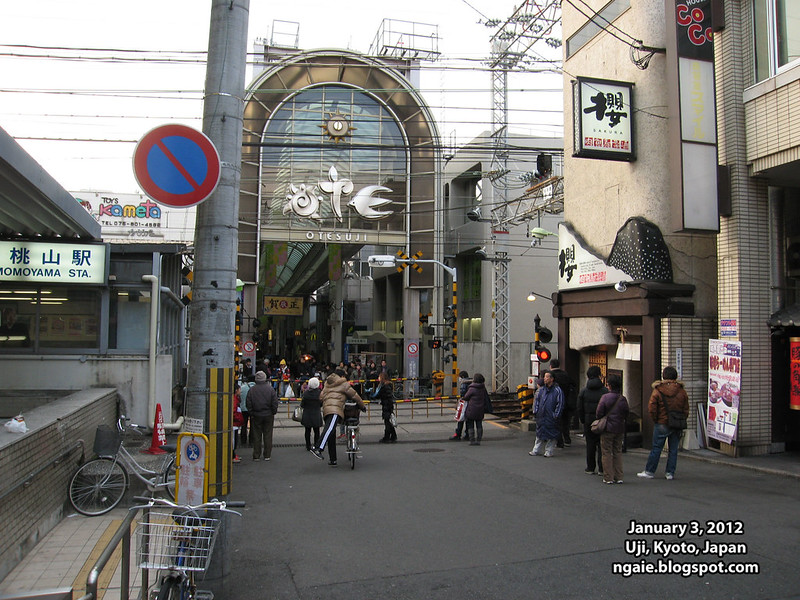
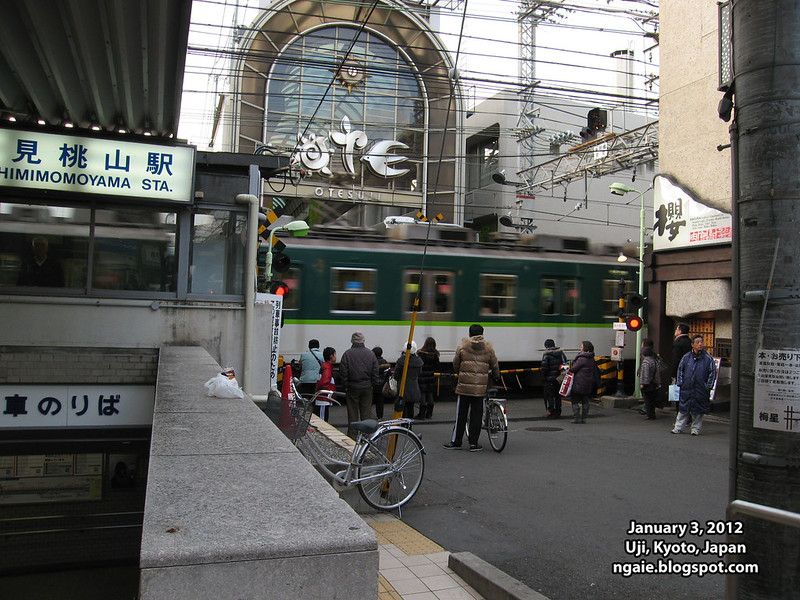
Because it was still early when I got back to Kyoto, I decided to see the Sanjusangendo Temple (三十三間堂) which is supposed to be famous for its 1001 statues of Kannon, the goddess of mercy. However, once I got there, I found that there was an entrance fee and by this time, I was "templed out", and did not feel it was necessary for me to visit another temple so I just walked around the perimeter and left.
It is a tragedy that in an attempt to please tourists, mainly coming from tour buses, all sides surrounding the temple had been paved over into a parking lot. Seems that this is no different than treating a historical temple like a suburban shopping centre!
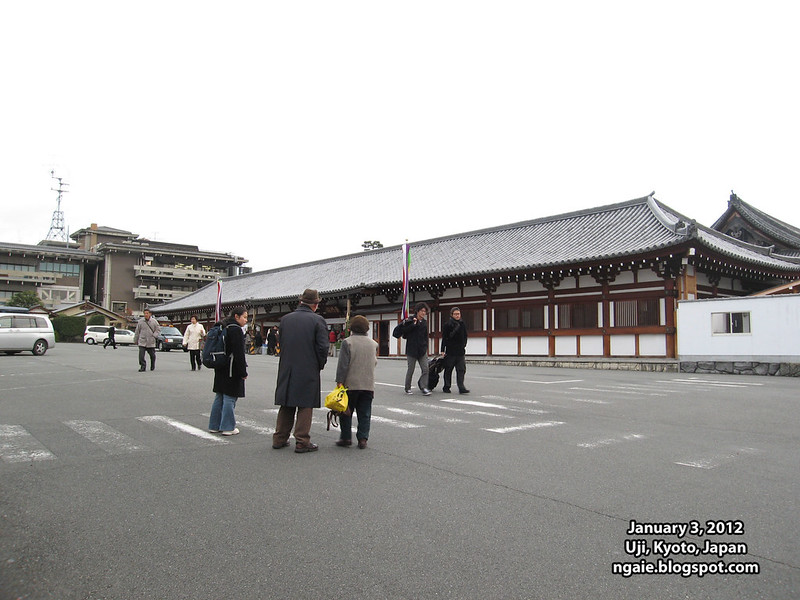
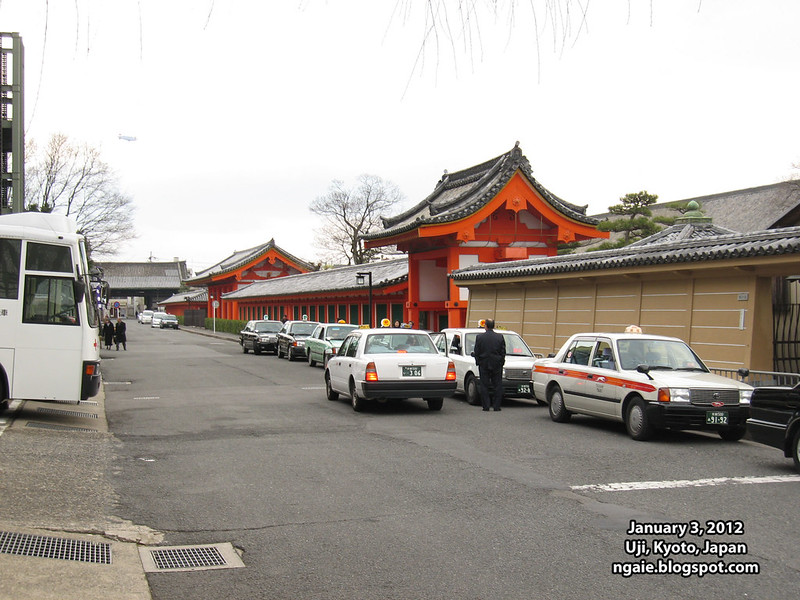
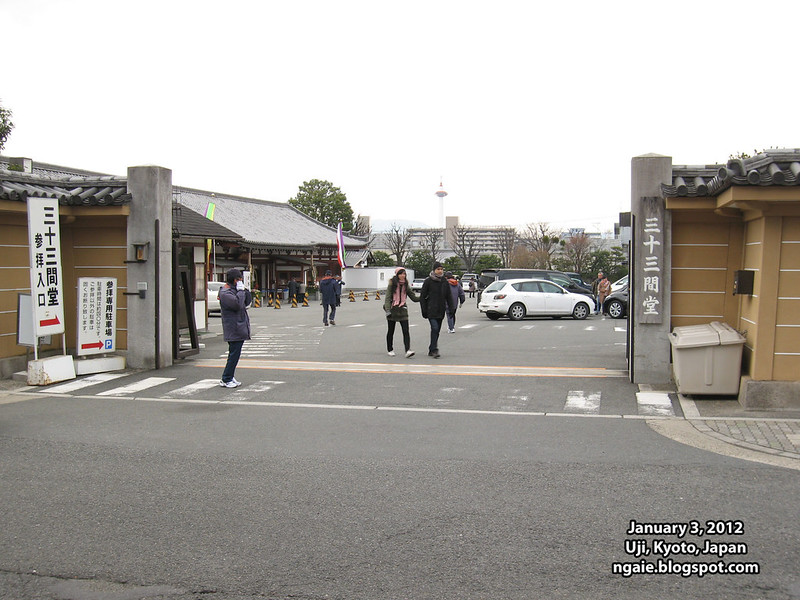
Afterwards I walked by the Yasaka Shrine (八坂神社) on my way to the Kawaramachi main shopping area of Kyoto.
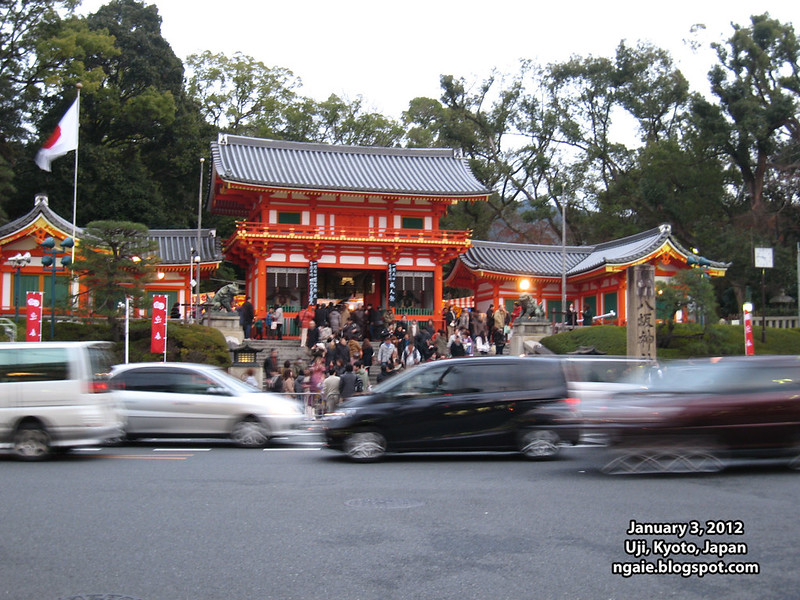
Back in my hotel, the Kintetsu Hotel Kyoto Station, one of the newest and most convenient hotels in Kyoto. It is located inside Kyoto station. Because of the New Year's holiday and because of the large amount of hotel rooms available all over Japan in general, by booking through Japanese online websites like Rakuten Travel (this is the key), it is possible to stay at a nicer hotel at a fraction of the cost! (like Toyoko Inn prices)
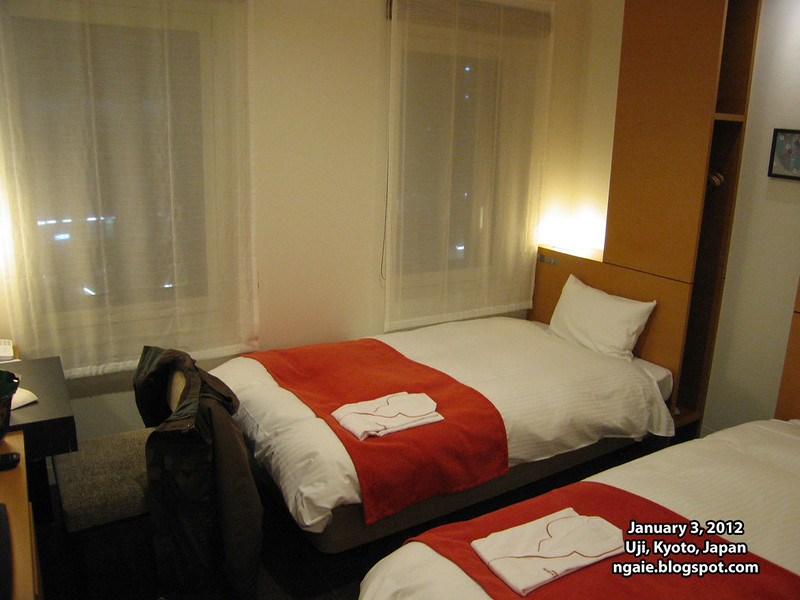
I also brought my Nintendo 3DS with me that day and I got a lot of Streetpasses including a new one from Shiga. On my way to getting a Streetpass from every region of Japan...
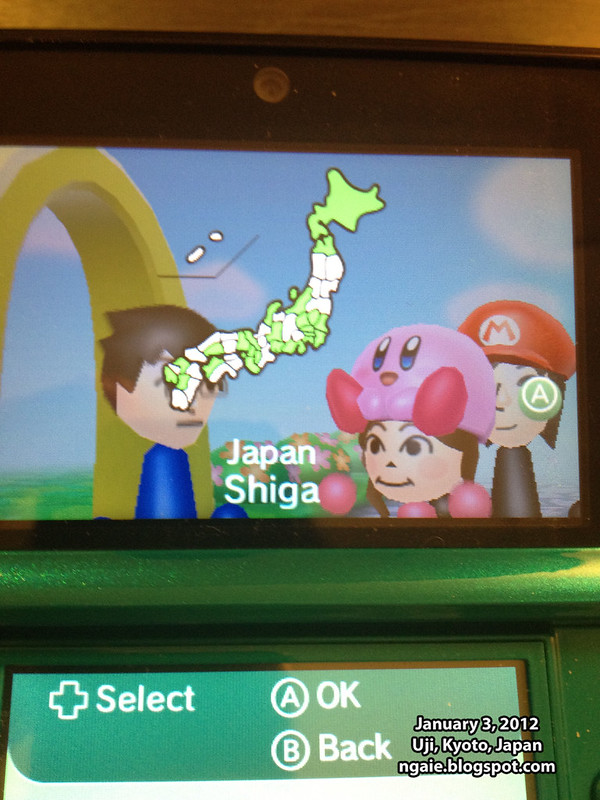
The Nintendo 3DS also has a built in pedometer and I walked up to 26,000 steps that day!
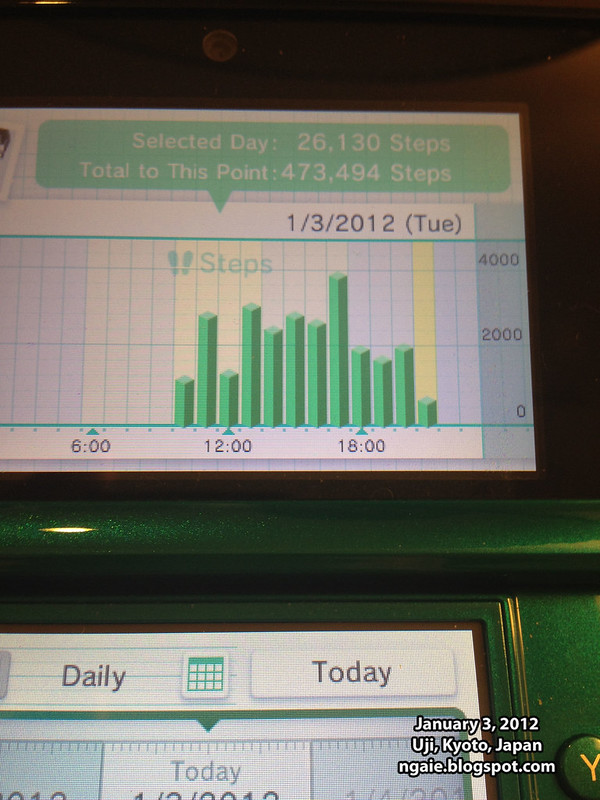

0 comments:
Post a Comment